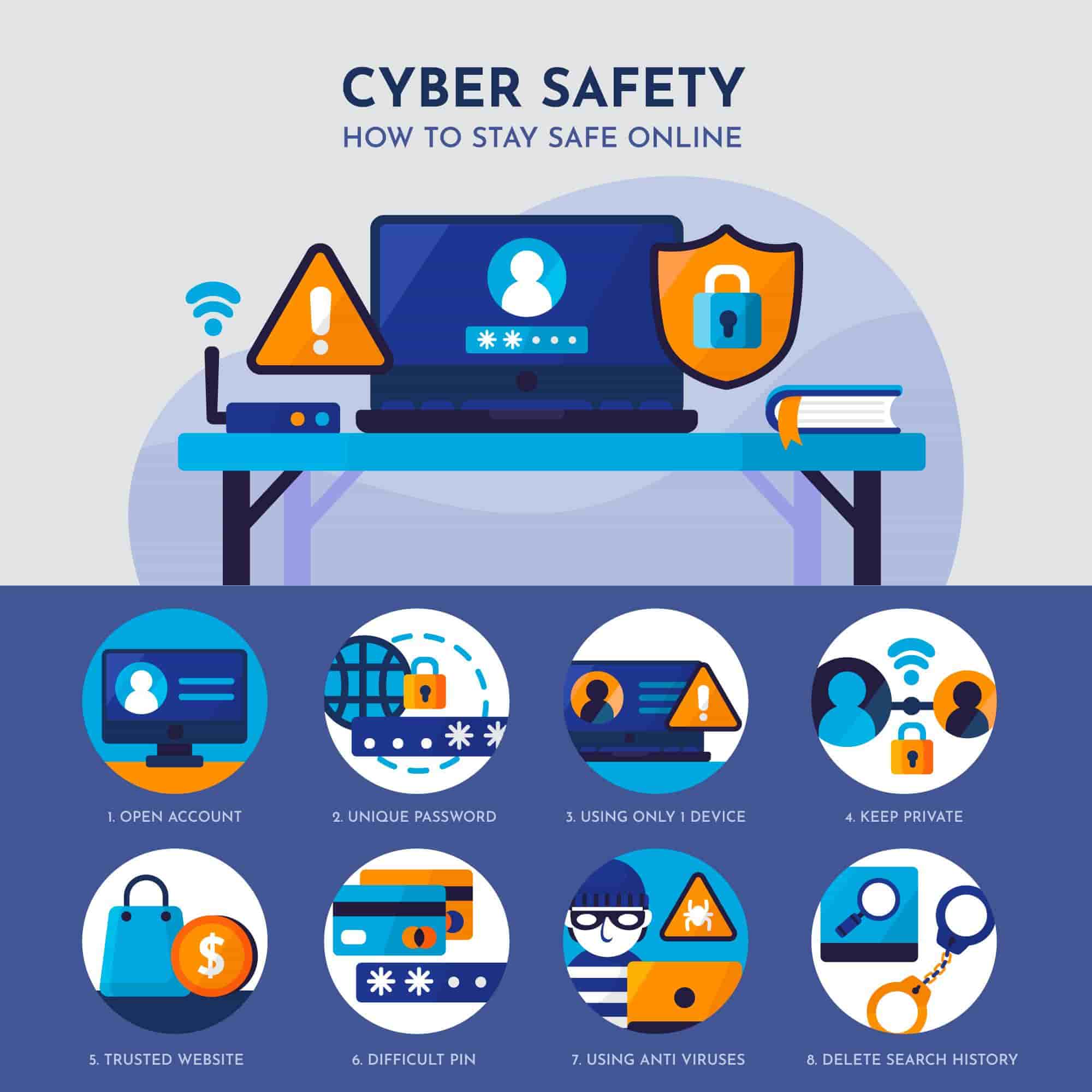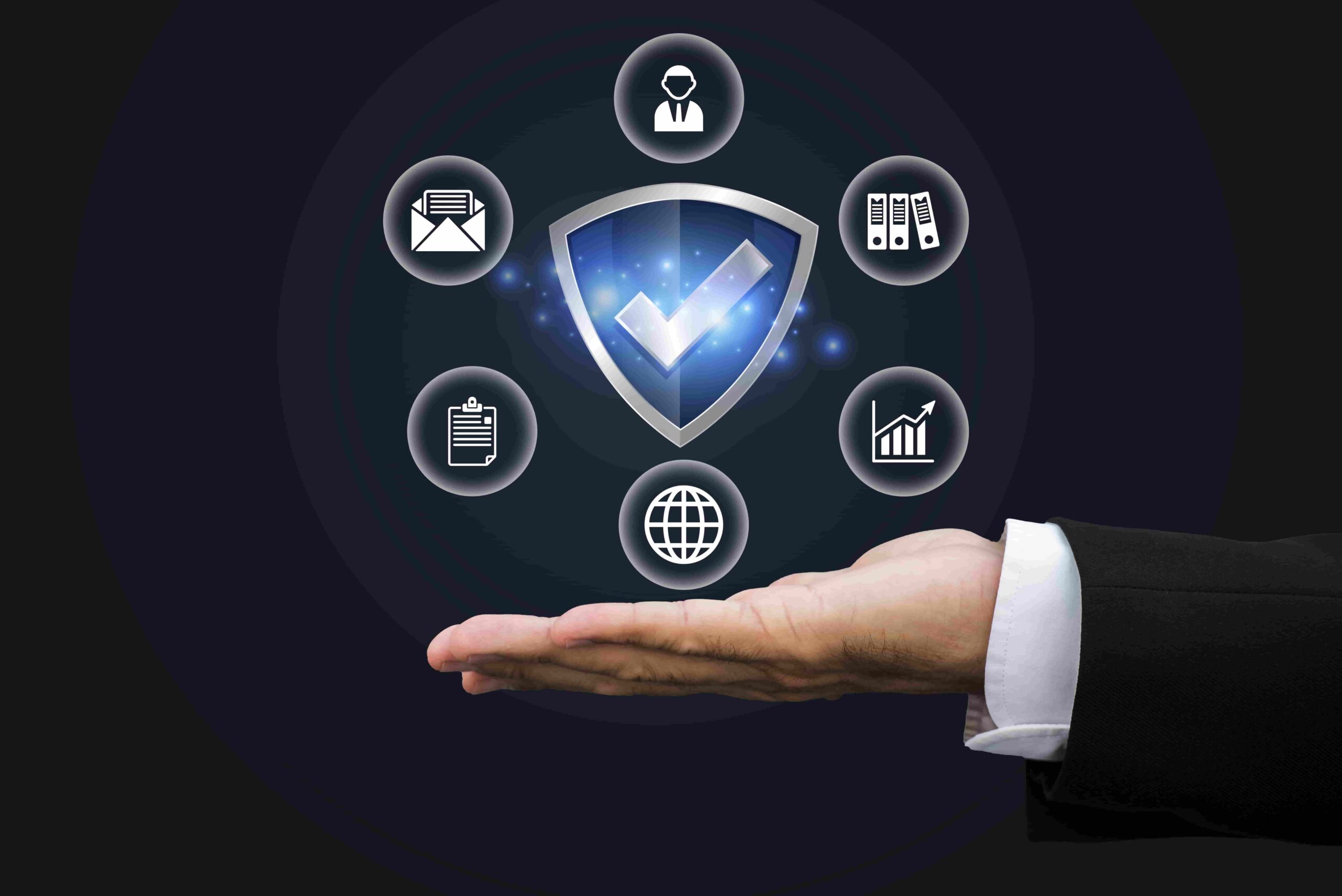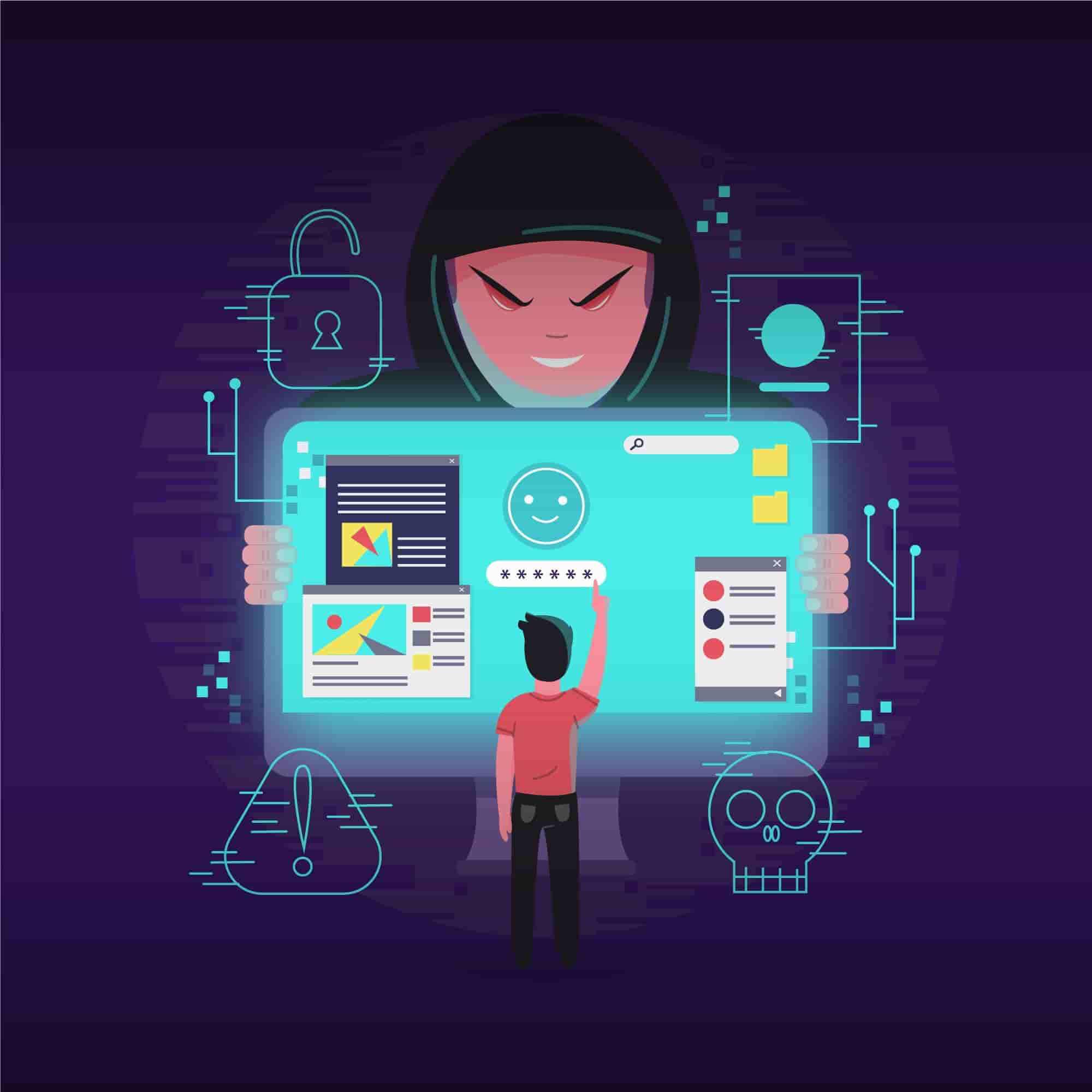Cyber Security After 12th Commerce: A Comprehensive Guide

Cyber Security After 12th Commerce: A Comprehensive Guide
Cyber Security Course After 12th Commerce
If you are looking for “Cyber Security After 12th Commerce,” then you are at the right place. This article will give you an overview of how cybersecurity works and how you could match the prerequisites of starting a career as a cybersecurity professional.
Several students have already signed up for courses specifically designed for cybersecurity techniques and the knowledge of how to use the latest cybersecurity tools that can offer security against malicious programs online and offline. What are we waiting for? Let’s get straight to the topic!
Introduction
The process of defending computer networks, systems, and data from online dangers like malware, phishing, and illegal access is known as cybersecurity. It includes a variety of steps to guarantee the privacy, availability, and integrity of data in the digital sphere, such as user authentication, encryption, and firewalls.
Protecting against cyberattacks and reducing the risks brought on by the constantly changing digital threat landscape are the two main objectives of cybersecurity.
Importance of Cyber Security
Before starting your career in cybersecurity you must learn about how cybersecurity works for the individuals and organizations working in the IT Sector globally. We all share a pile of data on the internet daily that can cause data breaches by malicious links and all other things online. Some of the features that cybersecurity offers you are as follows:
- Protection Against Threats: Protecting digital systems and data against a variety of cyber threats, such as malware, phishing, and hacking attempts, requires cybersecurity.
- Data Confidentiality: It protects sensitive data’s availability, confidentiality, and integrity and stops illegal access and data breaches.
- Business Continuity: Cybersecurity safeguards are necessary to keep operations running smoothly, preserve an organization’s brand, and build user confidence.

Relevance to Commerce Students
- Protecting Financial Transactions: Students studying commerce deal with financial information and transactions, which makes them easy targets for online fraudsters. Cybersecurity protects bank data and guarantees transaction integrity.
- Safeguarding Customer Data: In business, trust is essential. Cybersecurity contributes to data protection for customers, building client loyalty and confidence.
- Compliance and Regulations: Students studying commerce should be aware of and compliant with data protection laws. Compliance with rules and regulations controlling the management of sensitive information is ensured by knowledge of cybersecurity.
Understanding Cyber Security
Definition and Basics
- Threat Landscape: A wide range of risks are addressed by cybersecurity, such as ransomware, phishing, malware, and other destructive acts carried out by hackers.
- Security Layers: To establish a strong security posture, it makes use of several levels of defense, including firewalls, antivirus programs, encryption, and access controls.
- Human Element: Understanding the importance of human aspects, cybersecurity incorporates user awareness and education to reduce the dangers of insider threats and social engineering.

Why It’s Crucial in Today’s World?
1. Protection of Sensitive Data:
- Data Privacy: Cybersecurity is essential in today’s networked digital world to guard sensitive data, such as financial, personal, and company information, against loss, theft, and misuse.
- Preventing Financial Loss: To avoid financial losses from ransomware attacks, data breaches, and other cyber threats that could affect economies, enterprises, and individuals, cybersecurity precautions are crucial.
- Preserving Trust: By guaranteeing the security and privacy of digital assets, cybersecurity upholds trust in online transactions, communication, and collaborations as the number of digital interactions rises.
2. Safeguarding Critical Infrastructure:
- Protection of Critical Systems: Because important infrastructure is becoming more interconnected and susceptible to cyberattacks, cybersecurity is essential for protecting it. Examples of this infrastructure include electricity grids, healthcare systems, and transportation networks.
- National Security: In the current era, cybersecurity is a vital component of national security, as countries depend on safe digital infrastructure to fend off cyberattacks that could undermine military systems, interrupt vital services, or jeopardize sovereignty.
- Global Interconnectedness: The necessity of cybersecurity as a collaborative endeavor to tackle cyber threats that cut across national borders is highlighted by the interconnectedness of the global economy and communication.
3. Evolving Cyber Threat Landscape:
- The sophistication of Attacks: Strong cybersecurity measures are required to identify, address, and mitigate changing threats due to the increasing sophistication of cyberattacks, particularly advanced persistent threats (APTs) and zero-day vulnerabilities.
- Digital Transformation: The increasing digital transformation of enterprises has led to a greater dependence on technology, which has made cybersecurity a crucial component of corporate strategy to safeguard digital assets and ensure resilience.
- Individual and Organizational Impact: Due to the extensive effects that cyber threats can have on an individual’s money, privacy, and general well-being in the digital age, cybersecurity is an essential concern for both major organizations and individuals.

The Bridge Between Commerce and Cyber Security
The Intersection of Commerce and Technology
- Business Technology Integration:
As organizations depend more and more on digital platforms for operations, transactions, and consumer interactions, commerce and technology come together. To spur efficiency and creativity, this integration necessitates a comprehensive grasp of technology and business.
- E-commerce and Digital Transactions:
The emergence of e-commerce has brought commerce and technology closer together, highlighting the importance of cybersecurity, data protection, and safe online transactions in fostering customer confidence.
Data Analytics in Commerce: Technology makes it possible to analyze enormous volumes of data in business, which has an impact on marketing plans, decision-making procedures, and consumer experiences.
Role of Commerce Graduates in Cyber Security
- Business Risk Management:
Graduates in commerce are essential to the field of cyber security because they use their business knowledge to identify and mitigate risks related to managing data, conducting digital transactions, and maintaining privacy. Their comprehension of the financial ramifications aids in setting priorities for security expenditures.
Regulatory Compliance: Graduates in commerce play a vital role in enforcing adherence to data protection laws and regulations, comprehending the legal environment around cybersecurity, and putting sensitive data protection measures into action.
- Bridging the Communication Gap:
Graduates in commerce fill the communication gap between business stakeholders and technical cybersecurity experts. They promote an extensive corporate understanding by facilitating the efficient communication of cyber dangers, risks, and security actions.
Budgeting and Resource Allocation: When it comes to distributing funds and resources for cybersecurity projects, commerce experts are involved in striking a balance between the necessary level of protection and cost-effectiveness.
- Integration of Business Strategy and Cybersecurity:
Graduates in commerce combine cybersecurity and business strategy by matching company objectives with security controls. They aid in developing a cybersecurity posture that bolsters the company’s strategic goals.
Digital Transformation Initiatives: Commerce graduates play a crucial role in the digital transformation of enterprises by guaranteeing the seamless integration of cybersecurity measures into new technologies and processes, thereby protecting the organization’s digital assets.
Career Opportunities in Cyber Security for Commerce Students
| Level | Role | Description |
|---|---|---|
| Entry-Level Roles | Cybersecurity Analyst | Monitor security alerts, carry out vulnerability assessments, and support incident response. Analyze security data to comprehend risks and countermeasures. |
| IT Compliance Analyst | Secure regulatory compliance for an organization’s cybersecurity policy. Utilize knowledge of corporate operations for risk and compliance management. | |
| Security Operations Center (SOC) Analyst | Gain practical expertise in cyber threat detection and defense. Analyze data to detect and lessen security incidents. | |
| Growth Prospects | Cybersecurity Consultant | Advise businesses on risk mitigation, compliance, and security tactics. Collaborate with different sectors and clients. |
| Security Engineer | Plan and carry out security solutions. Apply business knowledge to the construction of reliable security architectures. | |
| Chief Information Security Officer (CISO) | Direct the overall security strategy of an organization, coordinating it with business goals and ensuring efficient risk control. |
Educational Pathways
Certifications and Courses
- Certified Information Systems Security Professional (CISSP): Widely accepted, the CISSP addresses many areas, such as asset security, communication and network security, security and risk management, and security and risk management.
- Certified Ethical Hacker (CEH): With an emphasis on ethical hacking techniques, CEH teaches students how to spot weaknesses in security protocols and fortify them.
- CompTIA Security+: For those just beginning their cybersecurity adventure, an entry-level certification covering fundamental cybersecurity topics is appropriate.
- Certified Information Security Manager (CISM): For people who want to monitor and manage information security initiatives inside businesses, CISM is a great fit.
Skills Required
| Category | Skills Required | Details |
|---|---|---|
| Technical Skills | Network Security | Expertise in establishing and maintaining network security equipment such as intrusion detection/prevention systems and firewalls to protect corporate networks from cyberattacks. |
| Ethical Hacking and Penetration Testing | Proficiency in detecting weaknesses in systems and applications, with an understanding of various hacking methods and tools to evaluate and fortify security measures proactively. | |
| Security Information and Event Management (SIEM) | Ability to gather, analyze, and correlate security event data using SIEM solutions, enhancing the capacity to identify and address security events. | |
| Soft Skills | Communication Skills | Essential for working with cross-functional teams, communicating security risks and recommendations effectively, and conveying complex technical information to non-technical audiences. |
| Problem-Solving and Analytical Thinking | Critical for quickly identifying and resolving security issues, investigating incidents, analyzing trends, and developing practical solutions. | |
| Continuous Learning and Adaptability | Commitment to lifelong learning and staying abreast of the latest threats, technologies, and best practices. Flexibility is key in adapting to new threats in the dynamic field of cybersecurity. |
Challenges Faced by Commerce Graduates in Cyber Security
Bridging the Knowledge Gap
It may be difficult for graduates of commerce programs to bridge the knowledge gap when they enter the cybersecurity field because they must learn technical skills in fields like network security, cryptography, and ethical hacking.
To close this knowledge gap and acquire practical experience, it is imperative to pursue ongoing education through pertinent coursework and certifications.

Staying Updated with Technological Advancements
For graduates in commerce, keeping up with the quick changes in cybersecurity technology might be difficult. To combat this, it’s essential to continue participating in industry forums, going to webinars, and seeking out ongoing education to make sure you’re informed of the newest techniques, fashions, and dangers in the ever-evolving world of cybersecurity.
Future of Cyber Security in Commerce
Emerging Trends
- Zero Trust Security Model: To improve security posture, a Zero Trust approach—where trust is never assumed—will be adopted more frequently.
- AI and Machine Learning Integration: AI and machine learning are being used more and more for automated reactions to changing cyber threats, anomaly detection, and threat detection.
- Cloud Security: Professionals with expertise in safeguarding cloud-based infrastructures will be in high demand due to the increasing dependence on cloud services.
- IoT Security: Securing networks and devices that are connected will be the main emphasis of cybersecurity as the Internet of Things (IoT) grows.
- Blockchain Security: Integrating blockchain technology will be essential for maintaining data integrity, transaction security, and decentralized systems.
Predictions for the Next Decade
| S.No. | Factors | What? |
| 1. | Increased Cybersecurity Workforce | There will be a significant expansion in the cybersecurity workforce in commerce as a result of the ongoing demand for qualified cybersecurity specialists. |
| 2. | Focus on Data Privacy | Organizations will prioritize data privacy in response to stronger data protection rules, which will drive developments in encryption, safe data management, and compliance procedures. |
| 3. | Rise of Cybersecurity Automation | To streamline procedures and react to threats instantly, cybersecurity operations will increasingly rely on automation and orchestration solutions. |
| 4. | Global Collaboration | Improved international cooperation on cybersecurity projects to counteract transnational cyber threats, exchanging threat information and optimal methodologies. |
| 5. | Advanced Threats and Cyber Resilience | To withstand sophisticated cyberattacks, organizations will prioritize developing cyber resilience and investing in advanced threat intelligence capabilities. |
| 6. | Integrated Risk Management | A move toward integrated risk management, which integrates business, compliance, and cybersecurity threats to produce a thorough and flexible security plan. |
| 7. | Cybersecurity Education and Awareness | A stronger focus on cybersecurity awareness and education initiatives to equip commerce professionals with the knowledge and abilities to handle the always-changing threat environment. |
| 8. | Regulatory Evolution | Cybersecurity laws and guidelines should continue to develop to keep up with new developments in technology and protect digital ecosystems. |
| 9. | Personal Cybersecurity Awareness | A greater focus on personal cybersecurity awareness since people are increasingly being targeted by cybercriminals, which calls for proactive personal digital security measures. |
| 10. | Holistic Cybersecurity Approach | To build a resilient and adaptable cybersecurity posture in the changing digital ecosystem, organizations will take a holistic approach to cybersecurity, combining people, processes, and technology. |
Networking and Professional Growth
Importance of Networking
- In businesses, networking is essential because it promotes cooperation, resource sharing, and information sharing, which boosts creativity and problem-solving skills.
- Offering chances for skill development, mentorship, and exposure to various viewpoints both inside and outside the company, promotes professional advancement.
How to Build a Professional Network
- To make both online and offline connections with specialists in your sector, attend conferences, seminars, and industry events.
- Make use of social media sites such as LinkedIn to interact with professionals, recruiters, and leaders in the sector by joining groups and taking part in discussions.
- To broaden your network and learn more about the Indian professional scene, take part in informational interviews, look for mentorship, and actively participate in professional communities.
Job Market Analysis
- Current Demand
The rising frequency and sophistication of cyberattacks, as well as initiatives for digital transformation and a growing understanding of the value of protecting digital assets, are driving a strong need for cybersecurity specialists in India.
Businesses in a variety of industries are looking for qualified cybersecurity specialists to protect their data and systems.
- Future Prospects
Given the steady increase in cyber threats throughout the world, the future of cybersecurity seems bright. The need for cybersecurity experts is predicted to increase as technology develops, opening up career prospects in fields including threat intelligence, cloud security, and the incorporation of artificial intelligence into cybersecurity solutions.
Since firms prioritize protecting their digital ecosystems from new dangers, cybersecurity will continue to be a crucial field.
Preparing for a Career in Cyber Security
Tips and Strategies
- Acquire a solid understanding of cybersecurity through practical experience, certifications, and courses.
- Participate actively in cybersecurity networks, network with professionals, and stay abreast of industry trends.
- Build a broad skill set that includes technical, analytical, and communication abilities. To obtain real-world experience, think about applying for internships or entry-level positions.
Resources
- Use online resources such as Coursera, edX, and Cybrary to obtain cybersecurity certificates and courses.
- For networking and information sharing, join cybersecurity networks and forums like ClubHack, Infosec Girls, and Null.
- For in-depth cybersecurity information and best practices, check out sites like OWASP, the NIST Cybersecurity Framework, and the SANS Institute.
Ethical Considerations in Cyber Security
Importance of Ethics
- To guarantee responsible and just actions, respect privacy, defend user rights, and preserve faith in digital systems, ethical concerns are essential to cybersecurity.
- Cybersecurity professionals are guided in their moral decision-making by ethical behavior, which strikes a balance between the necessity of security and the preservation of individual freedoms and social norms.
Case Examples
- Aadhaar Data Breaches: Aadhaar data breaches highlight how crucial it is to handle sensitive personal data ethically to safeguard individuals’ privacy and stop identity theft.
- Ransomware Attacks on Hospitals: The ethical duty to safeguard vital infrastructure, guaranteeing patient safety and the integrity of healthcare systems, is brought to light by cybersecurity events that target healthcare facilities.
- Social Media Data Misuse: Cases concerning the improper use of social media data highlight the necessity of taking user consent and privacy rights into account while collecting, storing, and using data.
Conclusion
If you want to learn cyber security techniques and the use of tools after 12th Commerce, you can get in contact with Craw Security which is offering the “1 Year Diploma Course in Cyber Security Training in Delhi,” for IT professionals who want to enhance their knowledge & skills in cyber security.
Moreover, one will get the best learning environment on the premises of Craw Security with the guidance of well-qualified trainers working for years in the IT Sector as professional cyber security experts.
Apart from that, you will get the chance to get your hands on the Lab facility that will let you test your skills and knowledge on real-life practicals. What are you waiting for? Contact, Now!
Frequently Asked Questions
About Cyber Security After 12th Commerce: A Comprehensive Guide
- Can commerce students pursue a career in cyber security?
Yes, students studying commerce who obtain the necessary credentials and abilities can work in cybersecurity. Graduates in commerce can find employment in cybersecurity since many positions in the sector, including risk management, compliance, and consulting, require a solid business background.
- What kind of roles can commerce graduates look into within cyber security?
Commerce graduates can choose between the following profiles after learning cybersecurity:
- Cybersecurity Analyst,
- IT Compliance Analyst,
- Security Operations Center (SOC) Analyst,
- Cybersecurity Consultant, and
- Chief Information Security Officer (CISO).
- Are there any specific certifications needed for commerce graduates to enter cybersecurity?
Indeed, certifications like CompTIA Security+, Certified Information Systems Security Professional (CISSP), Certified Ethical Hacker (CEH), and Certified Information Security Manager (CISM) help validate skills and improve employability for graduates of commerce programs hoping to pursue careers in cybersecurity.
A variety of cybersecurity topics are covered by these credentials, ranging from fundamental understanding to specialist fields like information security management and ethical hacking.
- How can commerce graduates stay updated with the latest in cyber security?
Graduates in commerce can keep up with cybersecurity by routinely reading blogs written by professionals in the field, subscribing to news sources on the topic, and attending webinars and online forums.
Additionally, they can keep up with the most recent advancements and new trends in the fast-paced sector of cybersecurity by seeking continuous learning through pertinent courses and certifications.
- Is the demand for cyber security professionals in the commerce field increasing?
For the most up-to-date information on cybersecurity demand in India in 2025, it’s important to examine the most recent industry publications or job market trends. The demand for cybersecurity professionals has been rising consistently throughout the world.

















